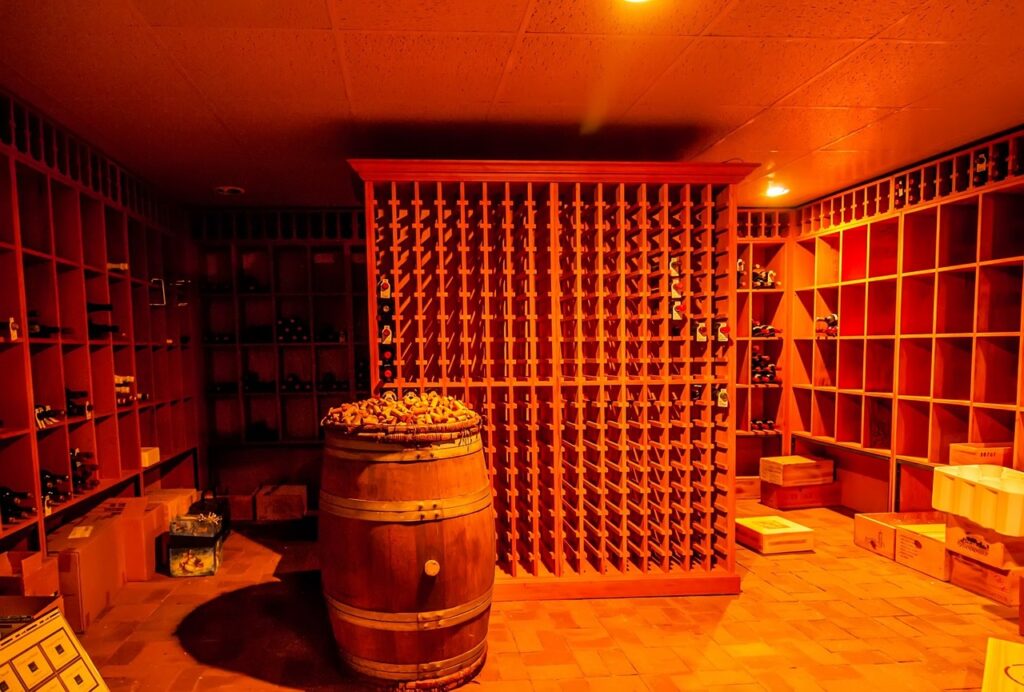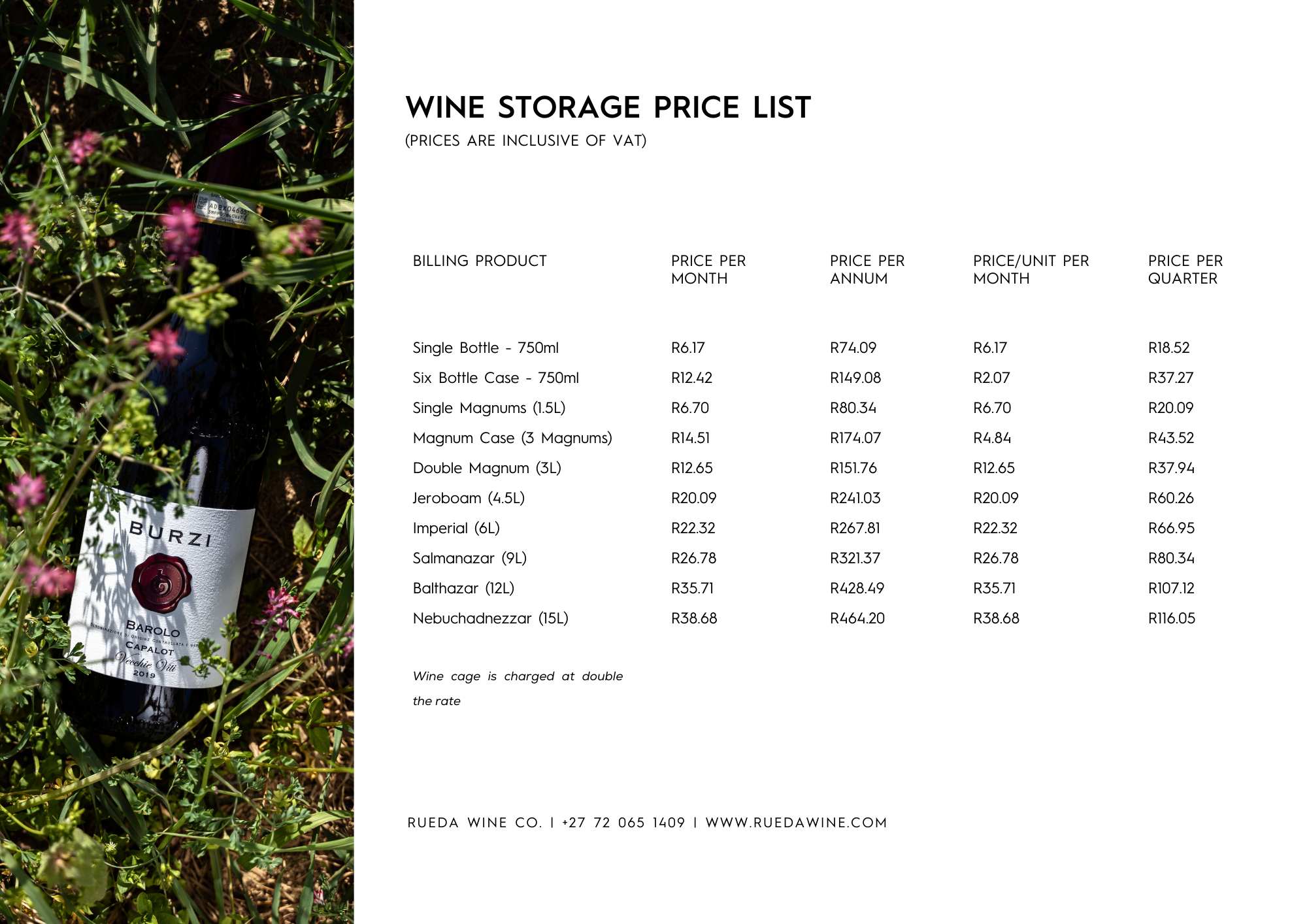
When you age or “cellar” wine, it means that you choose to store a wine you bought in a cool and dark place for several years. This allows the wine to mature as it stays in the bottle.
Many of us are unsure about which wines are suitable for cellaring and which ones should be consumed immediately. Fortunately, there is lots of information online, and we are here to help!
Why Cellar Your Wine
People in the wine industry often discuss the topics of cellaring and collecting wine. There is a romantic appeal to drinking wine that has been aged for a long time. The wine also often objectively improves and fundamentally changes.

Drinking an old wine can take one back to a special year that holds significance in their memory. For example the year we got married or were born.
Wine allows us to taste something from a time period that we may have never experienced before. In addition, when we drink wine that was intended to be aged, the ageing process contributes to the development of unique flavours. A wine that has been aged is completely different to young wine.
The Cellar
Having a wine cellar in your home is a great way to store and manage your wine effectively. If you want to have a well-organised wine collection, it’s important to store your wine with easy accessibility. A properly organised cellar can help elevate your entire drinking experience. By storing effectively one will find it easier to stock, consume, and refill your cellar. This will also ensure that you’re drinking it at the optimal time.
If you don’t have a cellar of your own, there are wine consultants that offer professional cellaring, like us! If you are collecting, then perfect storage is crucial. Not only for the wine but also for the asset value. When kept in the correct conditions, the wine will be given the opportunity to develop to its fullest potential.
What To Consider When Cellaring
Humidity
To keep the wine in its prime condition, it’s important to store it at a specific angle so that the cork stays moist from the wine. Keeping the cork damp and allowing for slight expansion and contraction of the air bubble can be helpful in case of temperature variation as the cork stops air or liquid from going through it. Wine’s biggest foe is oxidisation.
A properly designed cellar ensures that the bottle is stored at the necessary slight angle on its side. When you store wine under a cork, this factor becomes crucial. When the relative humidity is too low, it can cause the corks to dry out, and this can lead to ineffective sealing, which can cause the wine to evaporate out of the bottle.
High humidity can damage the labels as it may cause them to get wet. It’s crucial to have a climate-controlled cellar to ensure that your wine is stored and safeguarded in perfect conditions. It is generally considered acceptable to have a Relative Humidity between 50-80%.
Temperature
Maintaining consistent temperatures is crucial for proper wine storage. Fluctuations in temperature are harmful to wine. If you keep your wine in a pantry, kitchen cupboard, or even a refrigerator, it will affect the wine’s ageability. It’s very important that the temperature doesn’t get too cold either during cellaring. A wine that gets too cold doesn’t mature. Additionally, wine could freeze and change its chemical structure. Moreover, it could also cause the corks to pop out of the bottles. If the temperatures rise above 30°C, the wine’s volatile components could evaporate completely. This will affect the wine’s colour and clarity, likely destroying it.
Temperature Fluctuations
Wine can be damaged further by large changes in temperature than being stored at a consistently warm temperature. It would be recommended to rather keep your wine at a consistent temperature of 18°C rather than storing it in a place where temperatures fluctuate between 25°C and 15°C. It is the fluctuations that truly destroy wine. A higher consistent temperature would simply cause the wine to age faster. It is not recommended though that wine is stored for an extended period of time higher than 18°C.
It was believed that storing wine at 12-13°C was the optimal temperature. However, experts think that this is too cold. To let wine develop and mature properly, it’s likely more beneficial to store at an average temperature of 14-16°C. The key is consistency in liquid temperature. Storing your wine in a passive underground cellar or a temperature-controlled wine room will help maintain its quality over time.
Light and UV Exposure
Wine shouldn’t be exposed to bright artificial or UV light. If wine is exposed to too much light, it can harm the organic compounds unique to it. Producers, especially those who make Champagne and Sparkling wine, often use dark glass bottles to protect their wine from light. As light exposure will negatively affect the quality of the wine.
No Vibrations
When wine is exposed to vibrations, it can cause sediments that naturally occur in the wine to mix back in. This can change the chemical makeup of the wine. A cellar that is well-built should remain stable and free from any vibrations. When wine is stored in a place without any vibrations, it helps to preserve its flavour and aroma.
Concluding
Your wines will require some time to settle down peacefully, for you to get the greatest pleasure out of them. As the wines mature, their flavours usually change and become more intricate. Aged wine becomes truly unique and cellaring that special bottle really does pay off. Thus, having a large stock of wine ensures that you can always enjoy it when it’s at its best. Moreover, it’s a great way to plan for the future and make sure you have plenty of wine on hand!
JOIN THE RUEDA WINE CO. COMMUNITY

